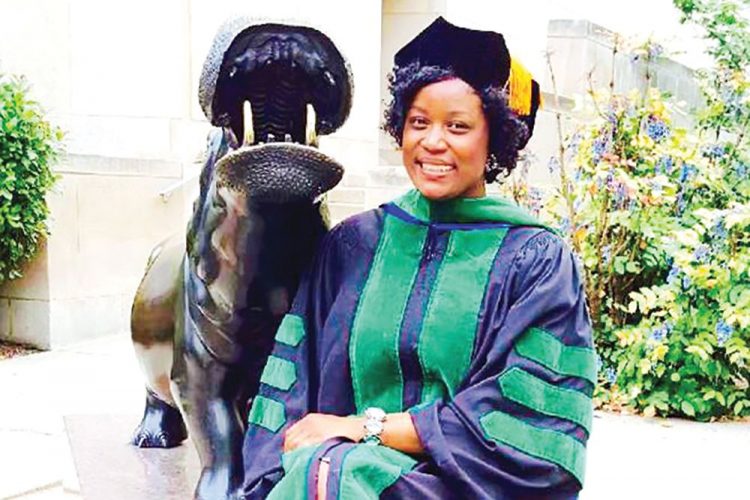Young Vincentian making name in medical research in US

by Lyf Compton
A young Vincentian woman whose research into vaccine development and Vitamin D deficiency has gained acclaim in American academic circles is reminding other young people that it does not matter where one is from or which school one attends; what matters is how determined one is to succeed.
Dr Ria Roberts, 29, originally from Lowmans Hill, migrated to the United States with her family when she was 16 years old. She is a past student of the Lowmans Leeward Anglican School and the Girlsâ High School (GHS). She is the daughter of Alana Roberts Warren and Lorenzo Warren, both of Lowmans Hill, and her sisters are Odinga Roberts-Harry and Keriann Roberts-Seymour.
She says while she received her university education in the United States, her foundation was set here.
âLowmans School prepared me well for GHS and the foundation helped make my US experience better. They asked if I was going to a private school in St Vincentâ¦,â said Roberts, who encourages parents to show interest in their children.
When she arrived in the US, Ria enrolled at the Manhattan Comprehensive High School and while there, took part in a summer programme on molecular biology. She later graduated as valedictorian and went on to Brandeis University in Boston.
She graduated in 2010 with a degree in biology, after which she joined Professor Dennis Kasper at Harvard Medical School, where she spent two years studying the bacteria that causes tularemia.
âI worked for two years doing vaccine research, developing a conjugate vaccine for the prevention of tularemia. Tularemia
is caused by a bug called francisella tularensis and the Centre for Disease Control and Prevention is very interested in it, because it can be used as a form of bio-terrorism,â Roberts explained.
She noted that tularemia is similar to anthrax, because it can be inhaled, causing death.
â⦠So, thatâs the work I did at Harvard Medical School and then there I got accepted to five different medical schools in the US,â said Roberts, who chose George Washington University, after being advised by a Harvard professor, who said she would have greater opportunities at George Washington.
Apart from being one of the facilities where the president of the United States may go if he were to fall ill, there is emphasis at that hospital on the social determinants of health.
Dr Roberts has published works on Vitamin D deficiency in the African-American population, which earned her the George Washington Universityâs highest honour for student research, the Doris DeFord Speck and George Speck M.D. Endowed Prize for Student Medical Research.
ââ¦My work on Vitamin D was trying to change the way Vitamin D deficiency and sufficiency is measured in the black population and it was well received, because it was like novel findings and I got two publications out of it and because of that work, my medical school in the US awarded me the highest research award because of the new findingsâ¦,â said Dr Roberts.
She also received several interviews from Ivy League Universities who were intrigued with her work.
âOne of the people who interviewed me, a programme director, said that I was the first person that he ever interviewed who taught him something in an interview,â said Roberts, who graduated from medical school just three weeks ago (May 21, 2017) and said she is proud that she has been placed at her number one internship choice, the Yale New Haven Hospital, where she is doing her residency training.
She said that her visit to SVG was to, ârelax and chillâ and her future goal is to become a dean at a medical school.
âIâm really interested in medical education and that is particularly why I wanted to go to Yale, because they have a fellowship in medical education and leadership and I am interested in increasing the diversity of medical schools in the USA, because even in my year, there were only 10 African Americans or black people graduating with me, out of a class of 180,â said Roberts.
She stressed, âWhatever you choose to do, make sure you love it, because you are going to spend so much of your life doing your career and if you donât enjoy it, you will be miserable. Find something that suits you and go with it. Donât try to fit in everyone elseâs box, because everyone is unique and everyone has their own potential and special purpose.â
She is also encouraging students to seek out mentors.
For the future, Roberts said that she has plans to bring physicians here to look at things like diabetes and place emphasis on prevention rather than treatment and as a result help decrease morbidity, as it relates to diabetes.









